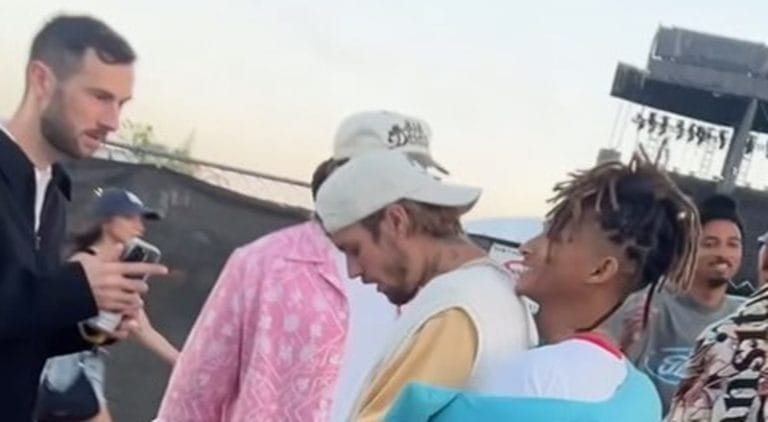
Hip Hop Vibe Staff Writer
The success of hip hop is proof that a person never knows where life can take them. This whole thing started when a couple of kids in The Bronx dared to be different and began spicing the music up. Now, hip hop is not only a unifying culture, it is also a multibillion dollar company.
Over the past forty-plus years, all types of people have come and reign supreme in the game. Many people have also come and made tons of money off hip hop, while not being for the culture. The phrase for these people, commonly used by Damon Dash is “culture vulture” and it fits all types of businesses.
On one side of the spectrum, it is glorifying to see how far hip hop has come in the span of one lifetime. For certain, guys like Big Daddy Kane, Rakim, and LL Cool J opened doors for guys like Jay-Z and 50 Cent to do what they do. Meanwhile, figures such as Russell Simmons, Tyrone Williams, Andre Harrell, and Len Fitchelberg paved the way for guys like Damon Dash, Sean Combs, Jermaine Dupri, and many others.
Earlier this year, hip hop prematurely celebrated the first billionaire in Dr. Dre, when it was announced Apple would purchase Beats, the parent company of Beats by Dre, for $3.2 million. The celebration was premature, initially, because the deal hadn’t gone through when it was announced. Officially, the celebration was premature, because Dr. Dre only made $800 million from the deal.
Still, having Dr. Dre as an employee at the company founded by Steve Jobs was amazing. Apple has provided a lot of things that have gone on to be used by people in the hip hop community, furthering things. Clearly, however, Apple’s orientation was not primarily geared towards hip hop fans, yet and still, they have received all types of free promotion via their products.
This is in no way a bashing of Apple, as their products are both superior and amazing, it is simply a question. Ultimately, an ideal hip hop world would include the golden ages of hip hop returning to prominence, with beat boxers and graffiti artists receiving tons of media attention, comparable to rappers, DJs, and battle rappers, along with partnering with major companies. But, in some ways, hip hop is not fully respected.
During the late 1980s and early 1990s, rappers and hip hop figures began to get smart about the business side of things. Hip hop ownership is very important, when done the right way. Initially, rappers worked hard with the intention of landing their own record deals, but innovative people such as Sylvia Robinson, the aforementioned Tyrone Williams and Len Fitchelberg, and Eazy-E started their own labels. Independence has been both hip hop’s gift and curse.
By the 1990s, hip hop-owned labels became more prominent, as Russell Simmons took Def Jam from being a boutique label under Columbia Records to being a full partner label under MCA (now Universal Music Group). This allowed for the formations of several sub-labels, which expanded ownership. Soon, such names as Jay-Z and Damon Dash were able to profit with high margins and create other forms of revenue.
Hip hop is a multibillion dollar business and this was proven when rappers’ mentions of clothing led to increases in popularity. When endorsements didn’t come, there was the birth of Baby Phat, Sean John, Rocawear, and many others. Such moguls as Master P, Sean Combs, Jay-Z and Damon Dash, and Suge Knight and Dr. Dre were changing the game.
Make no mistake, Corporate America, obviously had their eye on the hip hop culture and the money it was making. Non-rap figures emerged, such as Daymond John with FUBU and these types of deals opened the door for such businesses as Beats by Dre. By the late 2000s, clothing was oversaturated and headphones were the new thing and Dr. Dre and Jimmy Iovine jumped on it, together.
They were the faces of Beats by Dre, initially owned by HTC, the maker of the Android cell phone devices. But, the true question in this long-winded editorial about the histories of various hip hop businesses is what will happen now that Beats by Dre has abruptly ended? The brand showed much promise and was evidently worth a few billion dollars, why end it?
Even more questions come to mind, such as what role will Dr. Dre now play in Apple, if any? Will this prevent future hip hop-based tech ventures that actually have ownership by figures from hip hop? Given how far the culture has come in the business world, this situation is potentially scary.
Recent years have been kind to hip hop, as Eminem owns Shade 45, which is one of the most-popular radio stations ever. Meanwhile, Nas is the principal owner in Mass Appeal magazine, which is a resurgent and long-running publication with fantastic content. This goes without even mentioning what Sean Combs has done with Revolt TV, hip hop is making great strides and it should continue, but the question is will it?
Follow K.B. Tindal on Twitter @KBTindal.








